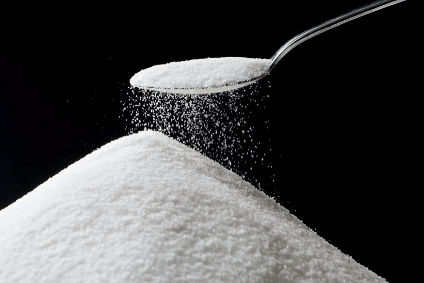
There is “a shocking difference in levels of salt and sugar” in breakfast cereals sold in nearly 30 countries by Kellogg and Cereal Partners Worldwide, a study published today (29 November) has claimed.
The World Action on Salt and Health (WASH) survey, which selected 19 products manufactured by the cereal giants for comparison across 29 countries, found 58% of cereals analysed had high levels of sugar, “with 55% of the cereals surveyed containing half the daily recommended intake of free sugars of a three-year-old (15g/day) in one serving”.

Discover B2B Marketing That Performs
Combine business intelligence and editorial excellence to reach engaged professionals across 36 leading media platforms.
According to WASH, “not one single product” featured in the survey contained “low levels of sugar… and 98 out of 291 (34%) of cereals surveyed were above the 2017 UK salt target for breakfast cereals”.
WASH is now calling for “all food manufacturers to universally reduce the salt and sugar content of their products to help achieve the global World Health Organization (WHO) maximum target of 5g salt per adult per day and 25g free sugars per day”.
According to the survey the “top five cereals with the highest sugar” per 100g were all Kellogg products. Top of WASH’s list was Kellogg’s Honey Smacks in Mexico, with 57g of sugars. Second was the US group’s Frosties sold in Australia and New Zealand with 41.3g, with its Froot Loops in Brazil and Mexico at third with 40g. Kellogg’s Coco Pops on sale in the US and Hong Kong was fourth with 38.7g, followed by the company’s Crunchy Nut Cornflakes – sold in the UK, Hungary, India, Kuwait, Spain, Ireland, United Arab Emirates – with 35g.
WASH said the “top five cereals with the highest salt content” per 100g were also Kellogg products. Kellogg’s Corn Flakes in India topped this list with 1.93g of salt, followed by the group’s Rice Krispies sold in Sri Lanka with 1.92g. WASH said third on the list was the group’s All Bran Flakes sold in the US with 1.81g, fourth was its Special K cereal in Canada with 1.80g and fifth was the group’s Coco Pops in Mexico with 1.50g.

US Tariffs are shifting - will you react or anticipate?
Don’t let policy changes catch you off guard. Stay proactive with real-time data and expert analysis.
By GlobalDataThe survey looked at the nutritional composition (sugar and salt content) of ready-to-eat breakfast cereals in 29 countries. WASH said to draw international comparisons, the survey focused on 19 products “that were found in a large number of participating countries”. These products were manufactured by Kellogg and Cereal Partners Worldwide, the venture between Nestle and General Mills, with manufacturer-suggested serving sizes ranging from 27g to 40g, WASH said.
“In the UK, the product with the most sugar out of all the UK products surveyed is Kellogg’s Frosties at 37g/100g – over nine teaspoons of sugar,” WASH said. “That’s over half (58%) of the recommended maximum free sugar intake for a 4- to 6-year-old in just one bowl (30g serving).”
On salt content, WASH said: “Over a third (34%) of all global cereals contained levels above the UK government’s 2017 salt target for breakfast cereals (1.0g maximum per 100g). In the UK, just two products were still above the salt target; Kellogg’s Rice Krispies and Kellogg’s Corn Flakes at 1.13g/100g, demonstrating the success of the UK’s salt reduction programme.”
Saadia Noorani, a registered public health nutritionist at WASH, said: “Our findings clearly show that both sugar and salt content varies among the same breakfast cereal sold in different countries with huge differences. We can see that some countries are supplied the exact same product whilst others are offered a different product with higher levels of salt and sugar. It’s evident that popular breakfast cereals can be manufactured with less salt and sugar and manufacturers need to do much more to improve their reformulation efforts across all countries.”
A Nestle breakfast cereals spokesperson told just-food: “We’re committed to providing our consumers with a nutritious start to the day and have made significant progress in reducing the sugar and salt content of our cereals over the past decade without compromising on quality or taste.”
“Across countries, we’ve reduced the sugar in our products by up to 30% and offer low or no added sugar cereals such as Shredded Wheat,” the spokesperson said. “Globally, we have also removed over 7,000 tonnes of salt. Cereal is a convenient and nutritious breakfast choice with our products containing more of the good stuff – grain, vitamins and minerals – than either sugar or salt.”
A Kellogg spokesperson told just-food the cereal producer had, “for more than a decade, been committed to reducing the sugar and sodium in our cereals while providing positive nutrition and great taste”. “There may be variations in recipes around the world due to consumer preference, but we are proud of the progress we’ve made against our global sugar and sodium reduction targets we set to achieve by 2020.”
The spokesperson added: “The majority of our cereals now have 10g (about 2.5 teaspoons) or less of sugar per 30g serving, and by 2020, 90% of our Kellogg’s cereals will have 10g of sugar or less per 30g serving. In the UK alone, we will have removed more than 2,000 tonnes of sugar in our cereals by the end of next year. In addition, in 2015 we exceeded our global goal of a 30% overall sodium reduction in ready-to-eat cereals five years ahead of schedule. And by 2020, at least 85% of our cereals will have 150mg or less of sodium per 30g serving. As a trusted provider of high-quality foods that contribute to the health of our consumers, we continue to be committed to offering choice through a diverse range of foods, and by educating consumers about nutrition and a balanced diet.”





